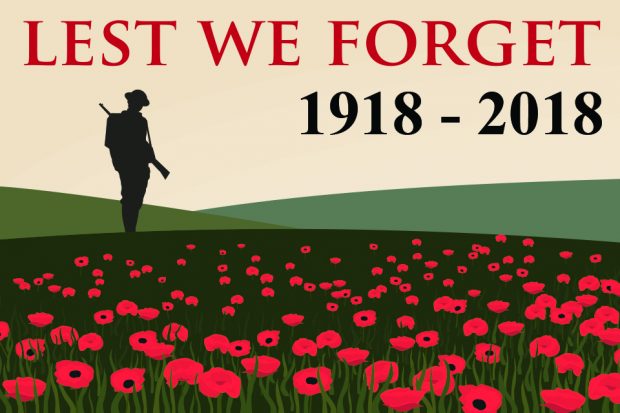Earlier in the year, I wrote about the centenary of the Royal Air Force and the work of the Board of Trade War Memorial Research Group.
The group has researched the 305 men who are commemorated on the Board of Trade war memorial, now located at the Department of International Trade (DIT) in Whitehall.
The Board of Trade was responsible for commerce and industry, and covered areas such as company law, patents, official statistics, and employment among others.
Edwina Osborne recently established an exhibition about the memorial titled ‘More than just a name’ at the DIT’s offices.
Of the 305 commemorated men who served in various roles across the Board of Trade, Edgar Reginald Bromage and Reginald Arthur McGuire worked in the Companies Department.
As the country marks the centenary of the end of the First World War, I thought it would be appropriate to share some of what we know of these two men.
Edgar Reginald Bromage
Born in Kensington in 1883 to William and Mary Jane Bromage, Edgar was the middle of five sons. The moved to Peterborough Road in Fulham in the 1890s, and Edgar was already a commercial clerk by the time he was 18. His older brother Arthur found employment as a carpenter, while eldest brother William Albert was a solicitor’s clerk.
Edgar was working at the Companies Department by 1911, and he was still employed there as an abstractor when he enlisted on 28 August 1914. He became Private 10926 in the newly formed 6th Service Battalion of the Duke of Cornwall’s Light Infantry.
Edgar would have seen various action on the Western Front on his arrival on the continent in May 1915. By July he had been posted to Hooge, near Ypres in northern Belgium. Edgar was killed in action on 24 July, aged 32.
Reginald Arthur McGuire
Reginald was born in Bristol in 1888 to Emily and Samuel McGuire, and was one of 4 sons. Reginald's father was employed as a Commercial Clerk, and mother Emily was a School Mistress.
Reginald moved from Bristol to Purley in 1910, and worked as a Second Division Clerk at the Companies Department of the High Court.
It's likely he was living in London with a couple of pals from back home in Bristol. Francis Carter and Percival Trenerry were also Second Division Clerks at the same address with Reginald.
He was an active member at Christ Church in Purley, and would act as a deputy organist, and Sunday School teacher. He was also a popular member of the local Sandersted Cricket Club, where he once took 5 wickets in only 10 balls.
He enlisted at Finsbury on 29 November 1915, and joined the London Regiment in January 1916. He saw action on the Western Front with the 13th Battalion throughout 1916, but by 1917 he was serving in Salonika. He was killed in action at Lake Doiran on 12 April 1917, aged 28.
Lest we forget
The work of the Board of Trade War Memorial Research Group continues, but it’s time to pause as the country marks the centenary of the end of the First World War.
To keep in touch, sign up to email updates from this blog, or follow us on Twitter.


4 comments
Comment by one who remembers posted on
Reginald was born in Bristol in 1888 to Emily and Samuel McGuire, Edgar was one of 4 sons. Edgar’s father was employed as a Commercial Clerk, and mother Emily was a School Mistress.
I like this tribute, but does the paragraph above read correctly??
Comment by Jonathan Moyle posted on
Noted and corrected. Thank you.
Comment by ROBERT WILSON posted on
Edgar Reginald Bromage RIP. The Duke of Cornwall Light Infantry. Regiment awards of the VC 8. Regiment disbanded in 1959.
Reginald Arthur McGuire RIP. The London Regiment, Regiment awards of the V.C. 7. Regiment disbanded 1938. Like wise 51 other regiments including the Black Watch, Green Howards, The Royal Scots and the WRAC.
In order to protect British business interests abroad, Britain declared war on Germany, a War that lasted from 28 July 1914 to 11 November 1918. Described by fools as the "War to End all Wars", an estimated nine million combatants and seven million civilians died. WW1, contributed later due to 'unresolved rivalries at the end', to the start of World War II. It appears to me that the duty of our 1914 Politicians was to protect Britain interests 'at home', and that Britain's interests at home would have been better served by making a phone call to the Kaiser, inviting him to London for tea and a warm, friendly cosy chat in Downing Street, and later at the Palace.
Bob Wilson, Leeds. 30-11-18
Comment by John posted on
Nice tribute, the Great War touched every organisation so it's great that Companies House remembers the fallen.